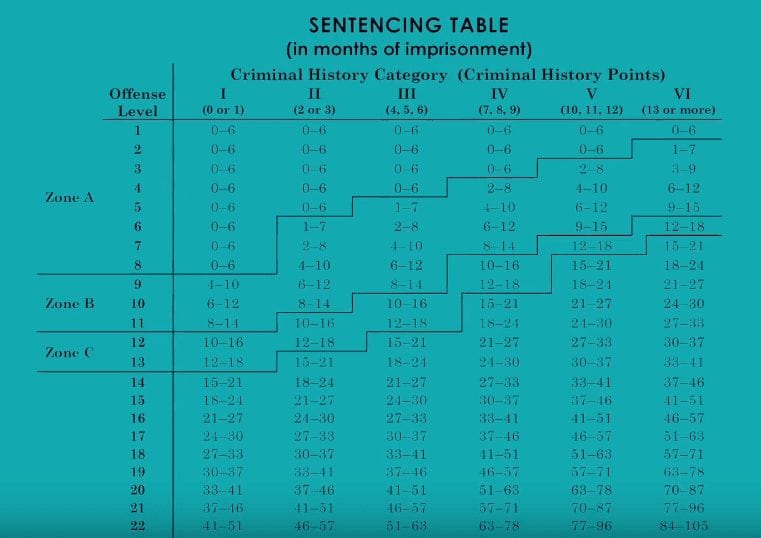Charged With a Crime? Sentencing and How It Works
Attorney Vincent RiveraThe majority of cases plea out which means we're going to end up at sentencing sooner or later. Many jurisdictions including federal court utilize a sentencing grid.
Sentencing Grid
Both the Kansas and Federal sentencing grids start with criminal history. This is along the top axis. Next is the offense level, the level of the offense is on the side axis.

Where the Offense Level and Criminal History Meet Is Your Guideline Sentence.
Once a guideline sentence has been established, that's not the end of the story. Your attorney still needs to evaluate whether or not you've been scored correctly on the sentencing guidelines.
- First, they need to look at your criminal history, and decide whether or not that is the appropriate criminal history score.
- They also need to look at the level of the offense, and make sure that is properly scored.
Determining the level of the offense, especially in federal court, is not as simple as it may seem
You're going to start with a base offense level, and from there, you're going to add and subtract levels based on what happened in the case.
For example, you might be reduced by 2 or 3 points because you pled guilty.
- You might have your sentence increased because of the number of victims.
- You might have your sentence increased because of the number of transactions.
- Your sentence can be increased based on the type of firearm that was used.
Again, your criminal history and the level of the offense are complicated calculations. It's important that you have an attorney that understands the guidelines, knows how to object to those guidelines, and knows how to object to your presumptive sentence.
Making sure that you have the appropriate guideline sentence is only half of the battle at sentencing.
Asking the judge to make an exception
Very often, we're asking the judge to make an exception to what the guideline sentence is.
That's when an attorney's ability to advocate for their client really comes into play.
We tend to make decisions emotionally, and then in hindsight and apply logic and reason to justify our emotions. It's important that the emotion behind your case gets presented to the court.
- What makes your case unique?
- What facts and circumstances make you different than everyone else?
- What happened in your life to get you to that point?
A talented attorney is going to know how to present those factors to the court. Ultimately, those are going to be the grounds that a judge is going to base their departure from the presumptive guideline.
When you meet with an attorney, it's important that your attorney understands the sentencing guidelines and understands how to tell your story. Don't be afraid to ask an attorney that you meet with: “How are you going to present my story at sentencing?”

